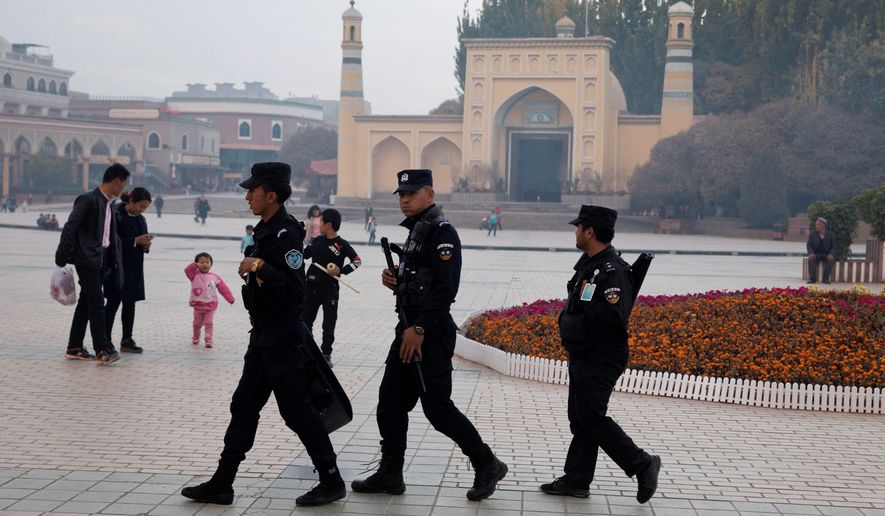Beijing’s mass detention of Muslim ethnic minorities, including Uighurs and Kazakhs, in China’s western Xinjiang region is among “the most disturbing developments” of the year, according to Amnesty International’s 2018 review of human rights.
“Up to one million people have been sent for political ’re-education,’” Amnesty’s annual report says of what China describes as a counter-extremism campaign, “during which they are held indefinitely without a trial, access to lawyers or the right to challenge their detentions.”
Beijing has denied the allegations, and maintains that Islamist militants and separatists are stirring unrest in the Xinjiang region.
Amnesty International researchers argue that Uighurs and Kazakhs are subject to “intrusive surveillance, arbitrary detentions and forced indoctrination in what amount to an alarming escalation of China’s oppression of ethnic minorities.”
Released Monday, the international rights organization’s yearly report summarizes major concerns among 159 countries and territories.
Additional “deeply troubling” trends in Asia include “the absence of human rights” in the denuclearization talks between North and South Korea.
Amnesty recommended that “as talks continue, [North Korean leader] Kim Jong-un and other North Korean leaders must be held accountable for the catastrophic human rights situation in that country, some of which may amount to crimes against humanity as found by a U.N. commission in 2014.”
The 51-page report notes that this year marked the 70th anniversary of the Universal Declaration of Human Rights, the first global bill of rights, which was adopted in 1948 by the world’s governments. The report asks world leaders “How far have we come?” since then.
Other major observations include “the stratospheric resurgence of women’s activism” across the globe in 2018, with gender issues dominating human rights headlines.
Amnesty highlighted the Argentine grass-roots feminist movement “Ni una menos” for galvanizing activism for women’s rights on a scale not seen before in Latin America. In India and South Africa, women’s rights activists have protested against sexual violence, while in Saudi Arabia and Iran, respectively, women risked arrest to resist driving bans and forced wearing of the hijab.
In the U.S., Europe and Japan, millions joined the #MeToo-led women’s march to demand an end to misogyny and abuse.
Amnesty also lashed out at what it called “tough guy” world leaders who are “pushing misogynistic, xenophobic and homophobic policies” that have jeopardized recent rights gains.
“In 2018, we witnessed many of these self-proclaimed ’tough guy’ leaders trying to undermine the very principle of equality, the bedrock of human rights law,” Kumi Naidoo, the group’s secretary-general, said in a statement accompanying the report. “They think their policies make them tough, but they amount to little more than bully tactics trying to demonize and persecute already marginalized and vulnerable communities.”
• Dan Boylan can be reached at dboylan@washingtontimes.com.




Please read our comment policy before commenting.